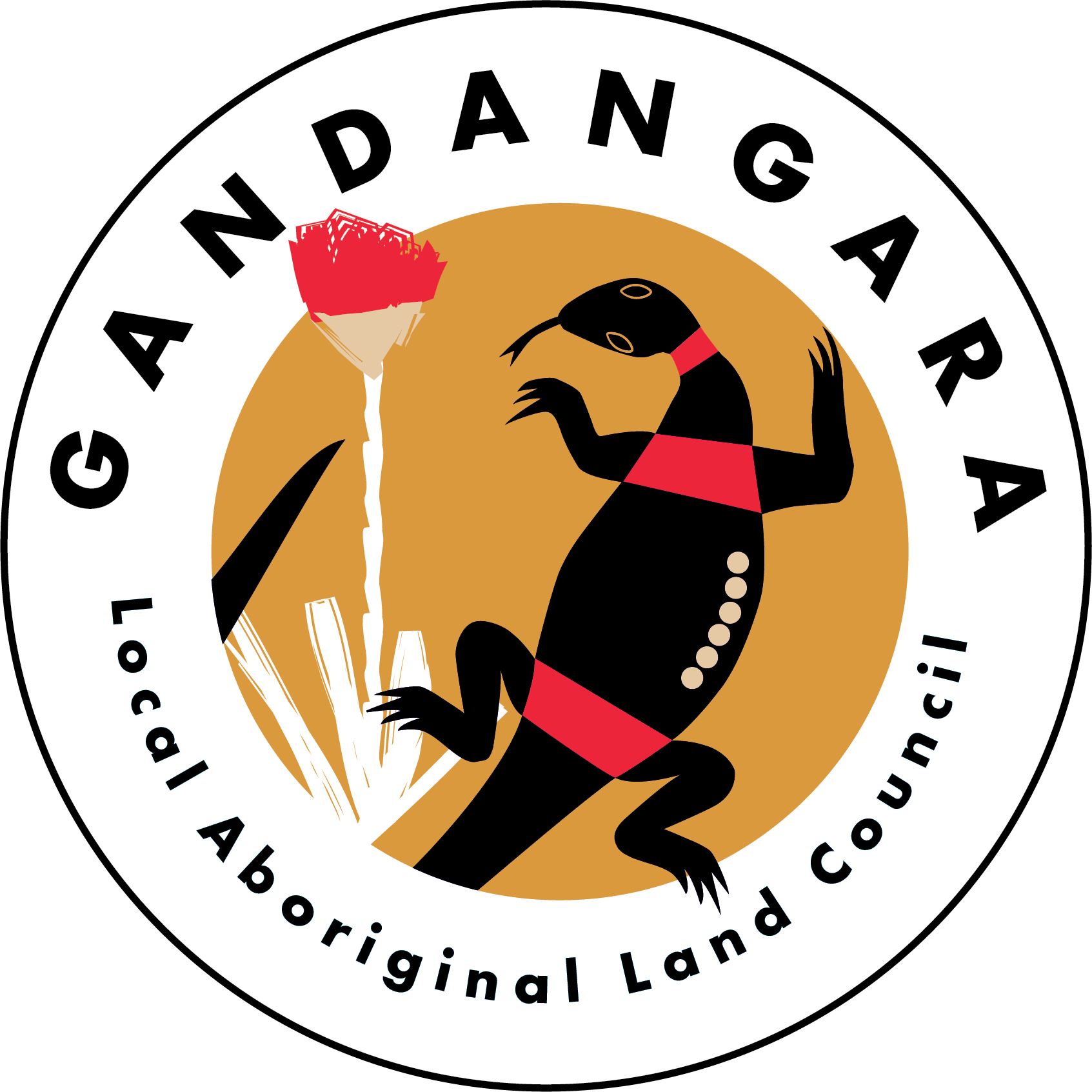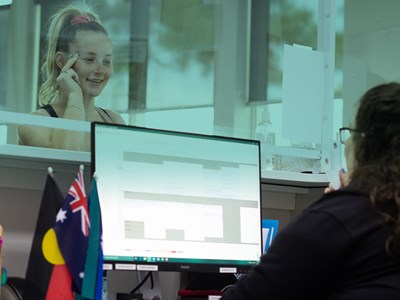Gandangara Community Healing Centre
Welcome to the Gandangara Community Healing Centre
We are a community support service that is culturally safe for First Peoples recovering from alcohol and other drug use who live in South Western Sydney. We provide you with personal one-on-one support from
- Counsellors
- Psychologists
- Case managers (who help plan and manage your care)
- Aboriginal health workers
- Peer workers (who have a similar lived experience to you).
Doctors from the health service can also prescribe addiction medicine.
You can also join our cultural community groups that include creative arts and yarn-ups with Elders. We combine Western science and Aboriginal ways of healing.
We understand that alcohol and drug use involve many difficult challenges. Coming to this website and thinking about visiting the Centre shows your courage and strength. Our door is open. We will meet you wherever you are on your journey and discuss whatever you want to talk about. Your friends and family are welcome too.
We’re located at:
- 33 Shropshire St, Miller NSW, 2168
- Phone - (02) 9601 0700
- Email - gchc@glalc.org.au
We are not an Emergency service.
If you are in an emergency right now, dial 000.
If you need to talk to someone 24/7, call 13YARN - 139276. It is a free and confidential Aboriginal-run phone helpline.
|
When you visit us, you will enter an Aboriginal community-controlled service. This means you will talk with people you can relate to, who understand your way of thinking and feeling, who have insight into who you are and where you come from. Please find out if you are eligible for our service. |
Our Centre is dedicated to people who identify as Aboriginal and Torres Strait Islanders. Many of our staff also identify as First Peoples themselves. When you visit us, you will enter an Aboriginal community-controlled service. This means you will talk with people you can relate to, who understand your way of thinking and feeling, who have insight into who you are and where you come from. Please find out if you are eligible for our service.
Our approach to healing goes further than stopping alcohol and drugs. It’s about bringing back your balance, building your confidence, strengthening culture and reconnecting with people, places and stories that can give you strength.
At our Centre, you step into a space where you are deeply respected, where your story matters and where we will support you. We acknowledge that you are the expert in your own journey, and we ensure your care reflects who you are and where you want to go. We will work with you, your family and Elders. Whatever route you want or need to take and at whatever speed you want to travel, it’s your journey and you decide the destination.
|
At the Gandangara Community Health Centre, recovery is
Every person’s recovery is different. |
We have a ‘One Gandangara approach’. This means you can access our wider circle of care and services. This will help your recovery, but also improve your overall wellbeing. Our services include:
- health care
- social and emotional wellbeing support
- cultural healing
- community connection
- practical support such as transport, housing support and family services.
We ensure your care is coordinated across all the services we offer that may help you along your healing journey.
Often, using alcohol or drugs is a way to cope with something much bigger in your life. The reasons may include:
- mental health and emotional issues
- physical trauma
- inter-generational trauma
- financial stress
- disconnection from family
- sexual, mental or physical abuse
- homelessness
- loneliness
- unemployment
That’s why most people who initially come in for help with substance use eventually move on to dealing with the root causes of why they use. Often, people are using it as a way to cope, hide or run away.
At the Centre, we’re here to help you find better ways of not just surviving but thriving. Healing is not a straight line. We may often see you many times before you achieve your goals. You may be trying to reduce how much you use, stop completely or maybe aim to get sober. This process takes time and we will be beside you every step of the way.
You are always welcome to bring a trusted family member, an Elder or cultural mentor, a peer worker (someone who has been through similar experiences), a support person or an interpreter to your appointments or activities.
STEP 1 Get in touch
You, your family, your GP, or another service provider can contact the Centre to express interest in joining one of our programs. You can call us, email us, visit in person or come through a referral from your doctor.
- In person - 33 Shropshire St, Miller NSW, 2168
- Phone - (02) 9601 0700
- Email - gchc@glalc.org.au
STEP 2 Initial information
When you contact us, a member of our team will explain our programs, answer any questions, and help figure out whether the Centre is the right place for you.
We will discuss with you:
- the different programs we offer
- who can join these programs
- how to give informed consent
- your rights and responsibilities
- how we keep your information private and safe.
You can download our Participant welcome pack here.
STEP 3 First meeting (Intake appointment)
If you decide you want to take part, we will schedule you in for an intake appointment.
In this meeting, we will:
- ask for some basic information about you and about what’s happening in your life right now
- talk about any immediate safety or wellbeing needs that you might have
- start discussing your goals and support needs
- ensure you understand your rights to give consent and keep information private.
STEP 4 Comprehensive assessment
You may be invited to complete a comprehensive assessment, when we will discuss your experiences, including:
- past use of alcohol and other drugs
- recovery goals
- mental health and wellbeing
- physical health
- cultural identity and support
- social, housing, family and community needs
- strengths, risks and priorities.
STEP 5 Individualised care plan
We will work together with you to create your Individualised care plan, which includes:
- your goals
- your strengths
- cultural, clinical, and community services and support that best meet your needs
- safety planning
STEP 6 Start your healing journey
Once your care plan is in place, we will welcome you into our programs. Next steps may include:
- case management and care coordination
- trauma-informed counselling
- peer support and mentoring groups
- cultural healing activities
- family support
- education and training
To be eligible for our services, we require that you:
- live within the Gandangara Local Aboriginal Land Council boundaries
- be aged 18 years or older (exceptions require formal approval).
- identify as Aboriginal and/or Torres Strait Islander
- be willing to engage in treatment and recovery planning
- attend program activities in a safe and supportive manner. You may remain in the program, but cannot attend sessions if you are intoxicated or visibly affected by alcohol or other drugs. If this happens, we will ask you gently to leave for that session and offer appropriate follow-up care and support.
Initially, participants will be referred directly to us from the South Western Sydney Local Health District Drug Health Services. This will expand to open referrals once the full service launches. We are committed to supporting the broader community through culturally safe, trauma-informed health promotion and harm reduction.
Our team member will sit with you to make a plan based on your goals, needs and hopes for the future. We’ll connect you with services across health, community, housing and wellbeing, so that everything works together to best support your recovery. Your Care Coordinator is here to guide you, advocate for you and walk beside you as your journey unfolds.
We understand that healing from alcohol and other drugs often involves working through challenging experiences. Our trained and experienced counsellors offer one-on-one support in a safe, respectful space where we listen and acknowledge your trauma. We will focus on your strengths, without judgment, to help you rebuild confidence and resilience at your own pace.
Sometimes, the best support comes from someone who truly understands what you have been through because they’ve had similar experiences. Our Peer Support Workers have personal experience with alcohol and other drug use. They are trained in community services or social work and specifically as peer workers. This training teaches them how to use their lived experience as part of their work to mentor and support you. This is your chance to talk to someone who really ‘gets it’.
Healing isn't just about what takes place in the clinic. It also happens through being part of your community, traditional ceremonies, sharing food and connecting spiritually. These activities honour who you are, where you come from, and where you're headed. At our Centre, culture and community are at the heart of healing.
Beyond your personalised care plan, you'll have many opportunities to join in with your community. Every day, the Centre runs different cultural activities and everyone is invited. You might want to go on a bushwalk to reconnect with Country.
You can join in creative activities such as dance, singing and music. You might learn how to do weaving, painting or drawing. Maybe you’d like to chat with Elders in a monthly Yarn-up, join a group on Women’s Business or Men’s Business, be part of a shared meal or watch a ceremony. Drop in at the Centre or check Upcoming Events to see the activity today.
We offer education and support for your family members and Elders. This helps them to understand how people can recover from alcohol and other drug use. They will discover how to walk alongside you and support your journey. Our family support programs help rebuild relationships, strengthen kinship ties and provide space for open conversations that respect everyone’s journey.
Recovery is about learning new ways to live and be strong and well. We offer programs that will help you reduce harm, develop life skills, prevent going back to old habits and improve your emotional well-being. You'll learn practical skills to manage stress, create healthy routines, strengthen your connection to culture, and build a better future for yourself and your family.
Some of your goals on your healing journey may include:
- cutting down on substance use or stopping completely
- improving your mental health and learning to manage your feelings safely
- learning ways to handle cravings, triggers, and stressful situations
- fixing relationships with your family, children and carers.
- improving your physical health, nutrition, sleep and daily self-care routines
- stabilising your housing and safe living arrangements
- strengthening financial wellbeing and budgeting
- getting back into education, training, volunteering or finding a job
- managing legal issues, child protection or court responsibilities
- participating in cultural healing activities, yarning circles and community events
- feeling more connected to culture and Country, through spirituality, kinship and Lore
- building confidence, self-advocacy skills and personal strengths
- planning for long-term recovery and future goals.
We’re grateful to the NSW Ministry of Health for funding to establish and operate the Gandangara Community Healing Centre. We also value the important shared-care partnership between South Western Sydney Local Health District and Gandangara Health Services.






